BY BRANKO MARCETIC
Jacobin
July 17, 2021
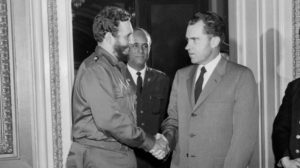
Richard Nixon, then Dwight D. Eisenhower’s vice president, met with Cuba’s Fidel Castro on April 19, 1959, in Washington, DC.
For sixty years, the United States has aimed to strangle Cuba’s economy and inflict misery on the Cuban people. Blockades are methods of war – and it’s time for the war on Cuba to end.
“They always blame the United States,” Sen. Marco Rubio (R-FL) said on the Senate floor this week. “The embargo, the first thing they blame, it’s the embargo. ‘The embargo is causing all this.'”
Not long after the UN General Assembly voted for the twenty-ninth straight year to condemn the six-decade-long US embargo on Cuba – a 184-2 vote that pitted only the US and Israeli governments against the rest of the entire world – the country has erupted in massive protests over widespread food and medicine shortages. A chorus of voices, ranging from Bernie Sanders and other congressional progressives to former Brazilian president Luiz Inácio Lula da Silva and Mexican president Andrés Manuel López Obrador, have blamed the conditions on the long-standing US policy, and called for it to be finally lifted.
Regime-change advocates like Rubio have pushed back against this. For them, the embargo is irrelevant to what’s now happening in the country, which they claim instead is a product of “six decades of suffering under totalitarian socialism and communism.” Predictably, their preferred response to the current protests doesn’t involve ending the policy.
But the reality is that the US “embargo” – or blockade, more accurately – was designed to exacerbate scarcity and encourage social unrest in Cuba. For decades, the blockade has strangled the country’s economy and deprived Cubans of access to essentials like medical supplies, its success at creating misery only intensifying with the fall of the Soviet Union, the coronavirus pandemic, and four years of “maximum pressure” under President Trump.
____________
The US blockade was designed to exacerbate scarcity and encourage social unrest in Cuba.
____________
As eighty House Democrats told Joe Biden at the start of this year, “with the stroke of a pen,” he could undo Trump’s actions and “assist struggling Cuban families and promote a more constructive approach by promptly returning to the Obama-Biden administration policy of engagement and normalization of relations.” But this obvious course of action is the very least Washington should do. The US blockade has been a generations-long undeclared economic war on Cuba, one that has consistently failed even on its own terms while inflicting enormous pain on ordinary Cubans.
The Undeclared War
The US blockade on Cuba has been a key part of Washington’s long-standing war on the country, launched shortly after Fidel Castro led a revolution overthrowing the country’s US-backed military dictatorship in 1959.
Things didn’t start out entirely hostile. The Eisenhower administration publicly took a cagey wait-and-see attitude toward the new government. Meeting with Castro for three and a half hours, then-vice president Richard Nixon advised him, according to a post-meeting memo, “that it was the responsibility of a leader not always to follow public opinion but to help to direct it in proper channels, not to give the people what they think they want at a time of emotional stress but to make them want what they ought to have.” With a tinge of regret, Nixon recounted that Castro’s “primary concern was with developing programs for economic progress.”
By September that year, as Castro restricted private ownership of agricultural land and prepared to nationalize foreign-owned industry, the US ambassador to the country expressed “our serious concern at the treatment being given American private interests in Cuba.” The next month, president Dwight Eisenhower approved a program backing anti-Castro elements – including Cuban exiles launching raids on the country and, later, US-supplied sabotage and bombing campaigns – in the hopes that it would topple Castro and make him appear to have caused his own undoing.
____________
The US blockade has been a generations-long undeclared economic war on Cuba, one that has consistently failed even on its own terms while inflicting enormous pain on ordinary Cubans.
____________
By December, a CIA division head would advise that “thorough consideration be given to the elimination of Fidel Castro.”
The Cold War gave this US mission extra urgency. Eisenhower warned the Soviets in 1960 that his administration wouldn’t tolerate “the establishment of a regime dominated by international communism in the Western hemisphere,” in line with long-standing Washington doctrine that the US government would intervene in countries in the hemisphere if they ran counter to US interests.
Hoping to stop the spread of “Castroism” and end it in Cuba, Washington pressured other Latin American countries to cut off diplomatic ties, travel, and arms shipments to the country, threatening to suspend military aid and other penalties to those who didn’t comply, eventually twisting enough arms to expel Cuba from the Organization of American States. After successfully pressuring European and Canadian banks to cancel and refuse loans to the Cuban government, what was termed a US “quarantine” of the country began in October 1960, barring all exports to Cuba, aside from food and medical supplies, and over the next few years adding all trade, imports, and even goods from third-party countries containing Cuban materials. By 1963, under John F. Kennedy, the blockade as we know it today was fully in place.
This was no small thing. A blockade – distinct from an embargo, by including imports and trying to coerce third-party countries – is a method of war that, under international law, is meant to only take place during armed conflict. It’s not for nothing that legal scholars have argued that the blockade of Cuba is a serious violation of international law, not least for the fact that it’s aimed explicitly at forcing a change in government. Even the US government’s own legal advisors determined in 1962 that it “could be regarded by Cuba and other Soviet bloc nations as an act of war.”
Just as Nixon would respond to the 1973 election of a socialist government in Chile by ordering the CIA to “make the economy scream,” US policymakers openly hoped impoverishing and starving the Cuban people would lead them to overthrow Castro. “Every possible means should be undertaken promptly to weaken the economic life of Cuba,” one State Department official wrote in 1960, in order “to bring about hunger, desperation and overthrow of government.” Eisenhower said it more plainly: “If they (the Cuban people) are hungry, they will throw Castro out.”
Tightening the Screws
As Cuba’s largest and closest trading partner, the United States produced an immediate impact on its economy when it ended trade. The share of Cuban exports going stateside plummeted from the more than 60 percent it stood at through the 1950s to less than 5 percent by 1961, while the roughly 70 percent of imports that entered the country from the United States by the end of the 1950s cratered at less than 4 percent. By 2018, a UN agency estimated the embargo had cost Cuba more than $130 billion over six decades, significant for a country whose average annual GDP is a mere fraction of that sum.
____________
Eisenhower said it more plainly: ‘If they (the Cuban people) are hungry, they will throw Castro out.’
____________
It was the Soviet bloc that kept Cuba’s economy afloat for decades, both through billions of annual subsidies and by filling the trade vacuum left by the United States, becoming responsible for 79 to 90 percent of Cuba’s overseas trade. From fuel, machinery, and parts, to fertilizers, pesticides, and even the fats used to make soaps, the resources that allowed life and the economy in Cuba to function normally flowed because of Cuba’s integration into a broader Communist camp.
The Soviet Union’s dissolution in 1991 was the biggest of several shocks that hit the Cuban economy that decade, leaving it more vulnerable than ever to the US blockade. GDP nose-dived by 35 percent, while agricultural output and manufacturing capacity collapsed by 47 and 90 percent, respectively. Construction and passenger transportation plunged by more than 70 percent each, while food queues, hours of no running water, and blackouts became a regular part of life. With soap suddenly needing rationing, Cubans had to make do with four measly bars a year.
Smelling blood, US lawmakers moved in for the kill. When Cuban trade with US corporate subsidiaries sharply rose in the wake of the Soviet crack-up, US congress passed the Cuban Democracy Act the following year to bar the practice, over the objections of the European Community and other allies, leading to the cancellation of dozens of trade deals with the country. On top of this, the law banned the sale of food for the first time (later repealed, sort of) and created a licensing regime for medicine and medical equipment so onerous that it functionally served to end medical commerce with the country. US lawmakers, it seemed, had no problem with heavy-handed government interference in the private sector, so long as it was at the service of overthrowing a government they didn’t like.
The EU similarly objected to the 1996 Helms-Burton Act, which took authority for the blockade away from the president and gave it to Congress, all but cementing it into place. Besides making revolution a prerequisite for lifting it, it further discouraged foreign investment into Cuba by, for instance, denying US visas to representatives of firms doing business with confiscated US property. This, even though a year later US military and intelligence agencies determined that “Cuba does not pose a significant security threat to the United States or other countries in the region,” and the Pentagon concluded the same thing a year after that.
____________
The American Association for World Health concluded in 1997 that the blockade had ‘dramatically harmed the health and nutrition of large numbers of ordinary Cuban citizens’ and ’caused a significant rise in suffering – and even deaths – in Cuba.’
____________
The results, as you might imagine, were brutal. After a yearlong investigation, the American Association for World Health concluded in 1997 that the blockade had “dramatically harmed the health and nutrition of large numbers of ordinary Cuban citizens” and “caused a significant rise in suffering – and even deaths – in Cuba” through “critical shortages of even the most basic medicines and medical hardware.”
The report painted a chaotic picture: increased disease as a result of more untreated water and less soap; ambulances, other emergency services, and health care facilities unable to function properly thanks to power outages and a lack of resources like fuel; high rates of anemia, iron deficiency, and undernourishment, the latter of which affected 22 percent of the population at one point; and hundreds of medicines out of reach or only sometimes available, made all the worse by pharmaceutical megamergers. Little surprise that 1994 saw similar civil unrest in Cuba as we’re seeing now.
These conditions were celebrated by the right-wing Heritage Foundation that year. Describing with relish reports of mothers turning to sex work, families subsisting on one meal a day, and the return of diseases like malaria, it urged the US government to keep the blockade in place until Castro’s government collapsed and to deny him a “much-needed safety valve” by turning away Cuban refugees. It casually noted the policy would likely lead to more repression for the Cuban people and possibly end in “bloodshed, armed conflict, and chaos,” before concluding, with no trace of irony, that “the United States must not abandon the Cuban people by relaxing or lifting the trade embargo.”
So, when Marco Rubio says today that “food, medicine and gas shortages are sadly nothing new in Cuba,” he’s right: modern history’s longest blockade has ensured these problems have been going on for a long time.
Economic Sabotage
That Cuba weathered all this is a testament to the benefits of what’s possible with a government that takes an active role during crises and seeks to guarantee economic security. With belt-tightening inevitable, the government launched a program of “humanistic austerity,” with major cuts to the state sector but increased health care and social spending, and food, clothing, and other goods rationed to prioritize vulnerable groups like pregnant women and the elderly.
____________
The Heritage Foundation noted US policy would likely lead to more repression for the Cuban people and possibly end in ‘bloodshed, armed conflict, and chaos.’
____________
Yet such temporary measures have their limits, as we’re seeing now. While Cuba’s economy is certainly plagued by serious issues separate from US policy, the ills being felt most acutely are overwhelmingly driven by two factors: the Trump administration’s “maximum pressure” strategy and the pandemic.
Over his four years in office, Trump signed more than two hundred directives aimed at making Cuba’s economy scream. He sharply restricted remittances (to one family member at a maximum of $1,000 per quarter) before effectively banning them outright. He also barred US travelers from carrying out any transactions with entities tied to the military and intelligence and security services, in practice an attack on both Cuba’s ability to draw foreign investment and its crucial tourism industry, given the heavy involvement of the military’s business conglomerate in, by one estimate, 60 percent of the economy. And he put sanctions on shipping companies and vessels transporting oil to Cuba from Venezuela, on top of an existing embargo on the country, which subsidized and supplied a third of Cuba’s oil consumption in 2019.
The impact was swift and clear. The targeting of Venezuela’s oil exports has led to more rationing of energy, shortages of personal hygiene products the government can’t afford while it buys fuel on the open market, and oxen replacing tractors on farms. Trump’s attacks on remittances led to the eventual closure of Western Union on the island, imperiling hundreds of thousands of Cuban families. And after an Obama-era uptick in tourism, Trump’s various restrictions on travel, including a 2019 cruise ban, saw tourist numbers drop for the first time in a decade, by 9.3 percent over 2018 to 2019, and nearly 20 percent over the year after that, with US visitors declining close to 70 percent.
On top of all this, the decline in both remittances and tourism deprived the country of key sources of hard currency. That’s caused the government’s further struggle in paying overseas creditors, hobbled its ability to import the 60 to 70 percent of its food supply it gets from overseas, and motivated its creation of the high-priced dollar stores that have been a core source of anger driving the current protests.
While it may be true the US blockade technically no longer applies to food nor prevents trade with other countries, Washington’s overlapping web of sanctions – by doing everything from depriving Cuba of oil and foreign-exchange currency to crippling its economy more generally and forcing tough trade-offs in overseas purchases – has effectively closed the door on both.
The Cuban state’s generous and long-term investment in health care and education means it was able to develop its own COVID vaccine – only to then face a shortage of syringes.
All of this would’ve been hard enough to navigate at the best of times. But in 2020, Cuba, like the rest of the world, saw its economy further devastated by the coronavirus pandemic that exacerbated every one of these problems: it brought tourism to a standstill, further strangled the entry of hard currency, worsened food shortages, and caused job losses that made Cubans ever more dependent on the foreign remittances Washington was determined to choke out. Over the year, the country saw its economy shrink 11 percent.
As the pandemic magnifies the devastation of the US blockade, the blockade has in turn made it harder for Cuba to handle the pandemic. In July 2020, a UN special rapporteur concluded the blockade was “obstructing humanitarian responses to help the country’s health-care system fight the COVID-19 pandemic.” Among other things, the blockade stopped medical aid and money transfers from overseas companies and humanitarian organizations, denied Cubans the ability to use Zoom, precluded the country’s purchase of ventilators, and caused a shortage of these and personal protective equipment (PPE), while blocking a donation of pandemic aid from China’s richest man.
Oxfam reports the blockade has had a “drastic effect on Cuba’s vaccine industry,” making it difficult to obtain the necessary raw materials. Even so, the state’s generous and long-term investment in health care and education means it was able to develop its own COVID vaccine – only to then face a shortage of syringes, the blockade making it difficult to buy them from manufacturers.
It’s the blockade, too, that has driven the pandemic’s resurgence on the island, a big driver of the current protests. The economic squeeze pushed a desperate Cuba to reopen the country to tourism in November, which, combined with shortages of PPE and a shortfall of 20 million syringes, led to a jump in cases. Still, it’s rich for the Rubios of the world to charge that “the regime’s disastrous COVID response is the predictable result of a corrupt government” as they beat the drums of regime change, when, even with Washington’s determined effort to sabotage Cuba’s pandemic recovery, its response – with 1,608 deaths as of July 12 – doesn’t even come close to the mass death of US citizens engineered by Rubio and his ilk during the pandemic.
____________
Over his four years in office, Trump signed more than two hundred directives aimed at making Cuba’s economy scream.
____________
Of course, none of this matters to Washington politicians who don’t think twice about casually starving and killing foreign people, whether by bombs or economic sanctions. But the irony is that the blockade has had a devastating effect on Cuba’s private sector, which is heavily dependent on tourism and on traveling to the US to buy materials. Nor is it particularly good for American industry either, with the blockade estimated to cost US businesses and farmers nearly $6 billion a year in export revenue.
Nor is it popular. For years, polling has shown a majority of Americans, even a fluctuating majority of Cuban Americans in South Florida, support ending the blockade, likely realizing that it’s both inhumane and, after nearly sixty years, ineffective.
Unfortunately, true to his Trump-lite approach to foreign policy, Biden has broken his campaign promises and is steadfastly continuing Trump’s Cuba policy, departing from the successful approach of the very Democratic administration he served in. Even as he “calls on the Cuban regime to hear their people and serve their needs,” Biden refuses to lift the Trump restrictions on remittances that more of those Cubans now depend on than ever.
Washington’s Handiwork
The unrest last week in Cuba cannot be fully understood outside the context of the blockade. None of this absolves the Cuban government over its repression of dissidents, or for the mistakes made in the course of the country’s economic management. But to put the stress on its “Soviet-style, centrally planned economy” and insufficient zeal in market reforms as the cause of the country’s economic woes, and not the more than half century of economic warfare waged by the world’s biggest power, is misleading to say the least.
Short of sadism and imperial hubris, there’s no good reason for the blockade to continue against a country that poses no threat to the United States, and which creates overwhelming misery for the ordinary people figures like Donald Trump and Joe Biden claim to stand with. And while removing it in full will be a heavy lift, requiring getting Congress on board, the president on his own could at least roll back the Trump policies he himself once acknowledged were an abominable failure.
Not doing anything will only drive home how hollow establishment lip service to human rights is.
ABOUT THE AUTHOR
Branko Marcetic is a Jacobin staff writer. He lives in Toronto, Canada.
Like this:
Like Loading...


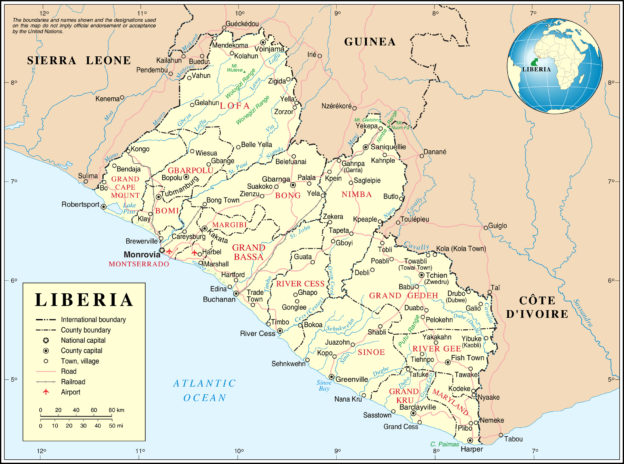
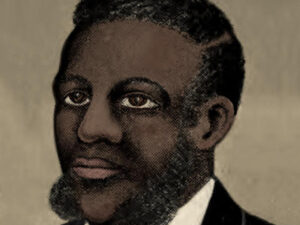

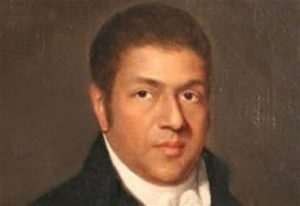
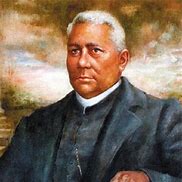
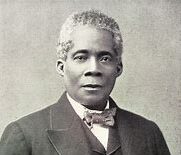
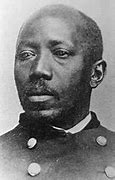

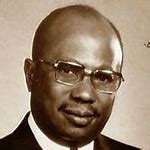
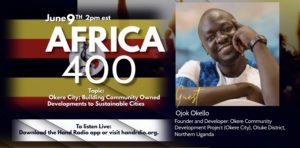
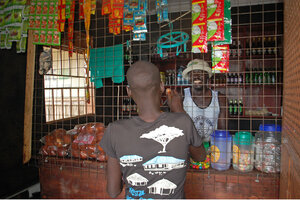 Ojok Okello earned a master’s degree in rural development and worked for international NGOs like War Child UK and the Konrad Adenauer Foundation in England, He earned a second master’s at the London School of Economics.
Ojok Okello earned a master’s degree in rural development and worked for international NGOs like War Child UK and the Konrad Adenauer Foundation in England, He earned a second master’s at the London School of Economics.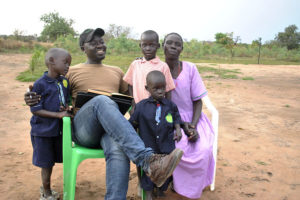 He is co-founder of Refugee Innovation and Sustainable Enterprise – Urban Project (RISE-UP) and Team Leader at its adjunct initiative, RiseUp Hub, a social enterprise with the mission to expand economic opportunities for urban refugees in Uganda. Okello founded Okere City in 2019.
He is co-founder of Refugee Innovation and Sustainable Enterprise – Urban Project (RISE-UP) and Team Leader at its adjunct initiative, RiseUp Hub, a social enterprise with the mission to expand economic opportunities for urban refugees in Uganda. Okello founded Okere City in 2019.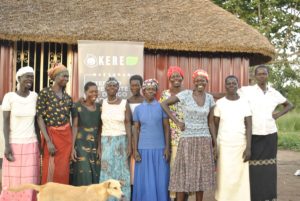
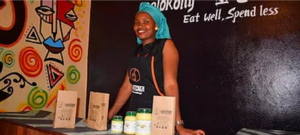

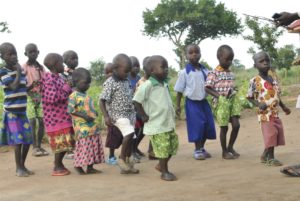
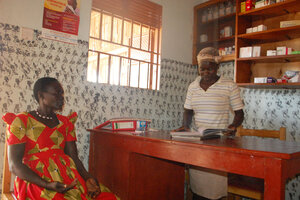
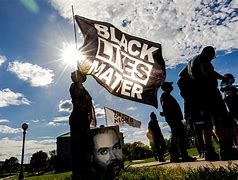 Let’s start off with a declaration: While I do admire the exposure that Black Lives Matter (BLM) has put on the issue of police brutality across the United States, and while I do not feel BLM deserves much of the skepticism and discredit that many on the right and even the Revolutionary Left have heaped upon it, I also do not consider myself a hardcore “BLM supporter”.
Let’s start off with a declaration: While I do admire the exposure that Black Lives Matter (BLM) has put on the issue of police brutality across the United States, and while I do not feel BLM deserves much of the skepticism and discredit that many on the right and even the Revolutionary Left have heaped upon it, I also do not consider myself a hardcore “BLM supporter”.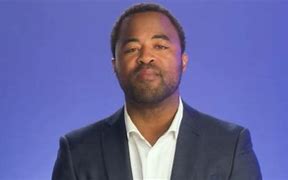 This comes at the same time that Rashad Turner, the reported founder of BLM-St. Paul, published a video (“The Truth Revealed About BLM”,
This comes at the same time that Rashad Turner, the reported founder of BLM-St. Paul, published a video (“The Truth Revealed About BLM”, 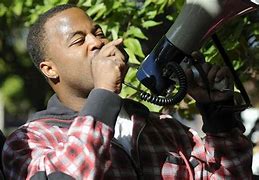 It would appear that his onetime support for BLM, an organization birthed in the aftermath of multiple police killings of Black men, women and children, has now waned as he has found his own Western-influenced beliefs to be in conflict with several of BLM’s core beliefs (which he may have ignored earlier). This seems much more accurate than some sensationalized statement about the “ugly truth” about BLM, which again smacks of a right-wing propaganda hit job best suited for “shock jock” radio or QAnon message boards.
It would appear that his onetime support for BLM, an organization birthed in the aftermath of multiple police killings of Black men, women and children, has now waned as he has found his own Western-influenced beliefs to be in conflict with several of BLM’s core beliefs (which he may have ignored earlier). This seems much more accurate than some sensationalized statement about the “ugly truth” about BLM, which again smacks of a right-wing propaganda hit job best suited for “shock jock” radio or QAnon message boards.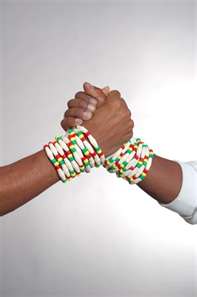
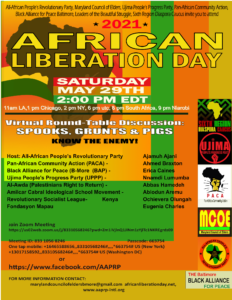
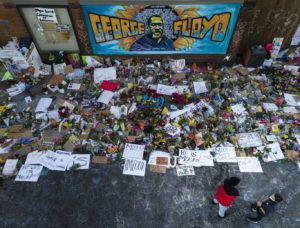 One year after the death of George Floyd under the knee of Minneapolis police officer Derek Chauvin, author and academic Caroline Randall Williams read the statement of Darnella Frazier, the young woman whose videotape of Chauvin killing Floyd led to the officer’s conviction on all three counts against him. Ms. Williams read the statement at the behest of MSNBC host Lawrence O’Donnell since Ms. Frazier, who recently turned 18, does not grant interviews or make public statements after the trauma of witnessing Floyd’s death and then testifying about it in Chauvin’s trial. One year later, and the George Floyd Justice In Policing Act of 2020 (HR 7120) is still being debated in the Senate as right-wing politicians seek to water it down or block it completely.
One year after the death of George Floyd under the knee of Minneapolis police officer Derek Chauvin, author and academic Caroline Randall Williams read the statement of Darnella Frazier, the young woman whose videotape of Chauvin killing Floyd led to the officer’s conviction on all three counts against him. Ms. Williams read the statement at the behest of MSNBC host Lawrence O’Donnell since Ms. Frazier, who recently turned 18, does not grant interviews or make public statements after the trauma of witnessing Floyd’s death and then testifying about it in Chauvin’s trial. One year later, and the George Floyd Justice In Policing Act of 2020 (HR 7120) is still being debated in the Senate as right-wing politicians seek to water it down or block it completely.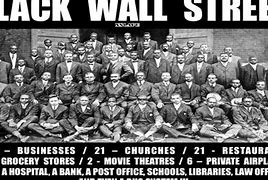 The historic irony is that this also comes as we approach the 100-year anniversary of the Tulsa Race Massacre, in which the thriving Black community of Greenwood, Oklahoma, also known as “Black Wall Street”, was burned to the ground in a violent White race riot on May 31 and June 1, 1921 that killed up to 300 Black people, sparked by a trumped-up story that a young Black teenager had bumped into a young White girl on an elevator and was accused of assault. Close to 10,000 Black citizens were left homeless and thousands were taken into custody and detained.
The historic irony is that this also comes as we approach the 100-year anniversary of the Tulsa Race Massacre, in which the thriving Black community of Greenwood, Oklahoma, also known as “Black Wall Street”, was burned to the ground in a violent White race riot on May 31 and June 1, 1921 that killed up to 300 Black people, sparked by a trumped-up story that a young Black teenager had bumped into a young White girl on an elevator and was accused of assault. Close to 10,000 Black citizens were left homeless and thousands were taken into custody and detained. 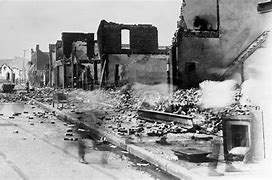 (
(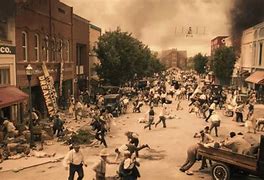 Rosewood Massacre of 1923 (
Rosewood Massacre of 1923 (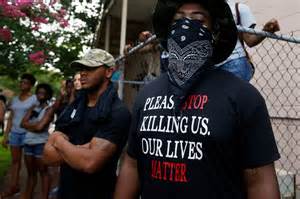 again, this is not a racist country. Never mind all the evidence to the contrary. Never mind that the United States was founded on the extermination of the Indigenous population and built on the backbreaking unpaid labor of kidnapped and enslaved Afrikans. Never mind the vicious, genocidal race riots from Wilmington to Rosewood to Greenwood that were never prosecuted, the victims never made whole and the history buried and denied to this day. Never mind the internment camps for Asian Americans after the conflict with Japan in World War II. Never mind the country’s history of ethnic, racial and political repression, from the Red Scare to COINTELPRO, that disproportionately targeted Black and Red communities. Never mind the repressive policies from several US presidents that increased the misery in the poor neighborhoods where many people of Afrikan Descent live, and the draconian law enforcement and judicial practices that severely punished transgressions by those who live there. Never mind the statistics on mass incarceration, political imprisonment and extrajudicial murders by police that continue even as you read this.
again, this is not a racist country. Never mind all the evidence to the contrary. Never mind that the United States was founded on the extermination of the Indigenous population and built on the backbreaking unpaid labor of kidnapped and enslaved Afrikans. Never mind the vicious, genocidal race riots from Wilmington to Rosewood to Greenwood that were never prosecuted, the victims never made whole and the history buried and denied to this day. Never mind the internment camps for Asian Americans after the conflict with Japan in World War II. Never mind the country’s history of ethnic, racial and political repression, from the Red Scare to COINTELPRO, that disproportionately targeted Black and Red communities. Never mind the repressive policies from several US presidents that increased the misery in the poor neighborhoods where many people of Afrikan Descent live, and the draconian law enforcement and judicial practices that severely punished transgressions by those who live there. Never mind the statistics on mass incarceration, political imprisonment and extrajudicial murders by police that continue even as you read this. 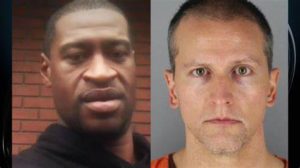 understand why George Floyd has become such a symbol, not because he was a hero but because, as a victim, he has symbolized, once again, the fine line that so many of our Brothers and Sisters must walk when they are forced to live in the margins of existence and are met by the keepers of “law and order”. To be sure, the person we are answering suffered tragedy of their own, and we feel sympathy for their suffering. But the Black Experience in America is one that apparently too many still cannot fathom, hence the old 1990’s saying, “It’s a Black Thing, You
understand why George Floyd has become such a symbol, not because he was a hero but because, as a victim, he has symbolized, once again, the fine line that so many of our Brothers and Sisters must walk when they are forced to live in the margins of existence and are met by the keepers of “law and order”. To be sure, the person we are answering suffered tragedy of their own, and we feel sympathy for their suffering. But the Black Experience in America is one that apparently too many still cannot fathom, hence the old 1990’s saying, “It’s a Black Thing, You 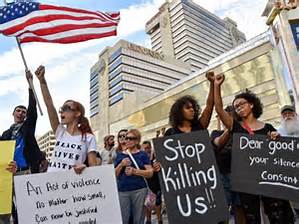 Wouldn’t Understand”. So many of this country’s White citizens (and some Black ones) have bought the right-wing’s rhetoric about how discussing and resisting police brutality in particular and racism in general is divisive, that we shouldn’t even see color, that the Movement for Black Lives and other anti-police brutality movements (whatever you think of their effectiveness) amount to “reverse racism”, and that the calls to “defund the police” are simply taking things too far. Thus, it was necessary to offer our analysis, from our particular point of view, of What It Is Like To Be Black In America.
Wouldn’t Understand”. So many of this country’s White citizens (and some Black ones) have bought the right-wing’s rhetoric about how discussing and resisting police brutality in particular and racism in general is divisive, that we shouldn’t even see color, that the Movement for Black Lives and other anti-police brutality movements (whatever you think of their effectiveness) amount to “reverse racism”, and that the calls to “defund the police” are simply taking things too far. Thus, it was necessary to offer our analysis, from our particular point of view, of What It Is Like To Be Black In America.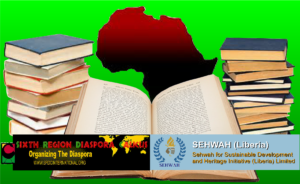
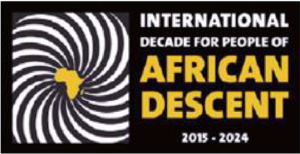
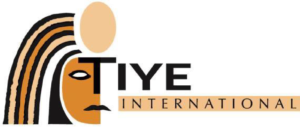 STATEMENT DURING THE CONSULTATIVE SESSION
STATEMENT DURING THE CONSULTATIVE SESSION Making Consultations Count: What We Need from the Permanent Forum on People of African Descent
Making Consultations Count: What We Need from the Permanent Forum on People of African Descent

